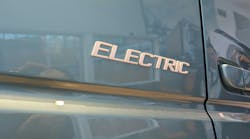Everywhere you look there is talk about disruption and transformation in the trucking industry. According to John Paul MacDuffie, professor at the Wharton School of the University of Pennsylvania, the disruptions are being categorized as connected, autonomous, shared and electric.
According to the CASE model, each disruptor has certain benefits:
Connected
- Enables real-time and on-demand services
- Increases efficiency and better experience
- Increases safety and advanced navigational capabilities
Autonomous
- Increases safety, eliminates human error
- Increases productivity
- Enhances mobility
Shared
- Reduces congestion and car ownership
- Increases utilization and occupancy
- Changes architecture in planning
Electric
- Reduces emissions
- Lowers maintenance
- Lowers noise pollution
Speaking at a recent NationaLease meeting, MacDuffie pointed out that the existing structure of the trucking industry will shape the direction of these developments as well as slow the pace of change to some extent, but that these forces will have an impact on our industry.
MacDuffie talked further about the impact of CASE. He says that connectivity is already a reality because there is so much data coming off today’s trucks and the amount and type of data is evolving day-by-day. However, we are not seeing much vehicle-to-vehicle or vehicle-to-infrastructure connectivity at this point, he says.
MacDuffie views vehicle autonomy as a more long-term issue and added that with the growth of dedicated contract carriage there is less value in reducing reliance on drivers.
Since leasing is already a usage model rather than an ownership one, it is already a shared business model. Factors that will continue to favor leasing are increasing maintenance complexity and the development of new technologies.
Electrification is one area where MacDuffie sees huge potential. There will be a big impact on acquisitions, asset management, maintenance and operations. Plus there is a great deal of uncertainty about charging electric vehicles.
This is just an overview of what MacDuffie sees ahead for trucking. In upcoming posts, I will share some more specifics about his take on what’s ahead for us in the future.



